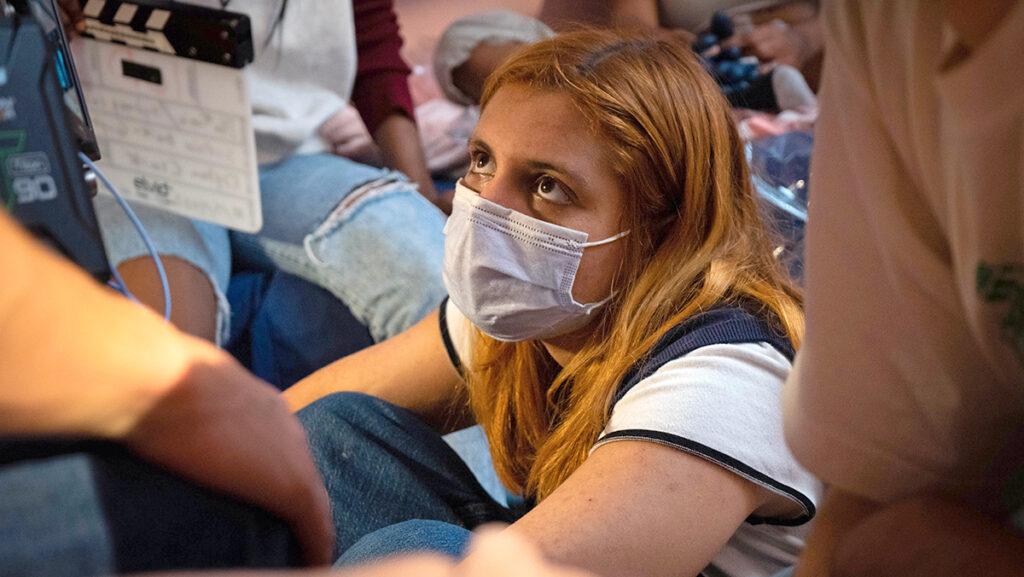Editor’s Note: This is a guest commentary. The opinions do not necessarily reflect the views of the editorial board.
On the cusp of graduation, I am working on confronting the past. While I loved many parts of Ithaca College, I feel a sense of grief at how many times my education showed a preference for men. It is impossible to encompass all of the gaps in our system, so I will turn my focus to sexism on student film sets. I write this not with a hatred for a place that has given me a great deal but as a desire to acknowledge what we treat as taboo in the hopes of improving it. Perhaps the Roy H. Park School of Communications does not inherently prefer men, but it allows and enables the exclusion of non-male filmmakers.
As a Cinema B.S. major, we predominantly focus on film theory and development, meaning the only place to truly learn equipment and set jobs is, well, sets — most of which were exclusionary in that women were never welcomed to join. Three years ago, I worked on a set and looking around to realize I was the only woman. My stomach dropped. How had I internally normalized this, maybe even enabled it? By willingly joining the set, was I enabling the system? All at once I was mad at my surroundings and disappointed in myself, intensely aware of the catch-22 Park had created for us. To be wanted on a set, there was an expectation of knowledge or specialization, but to reach that point you have to be on sets to learn and improve. This is not to say I am not constantly surrounded by deeply talented women in film school, but the opportunities to learn or participate were vastly rarer for us.
For me, the way into the cliques had come in the form of my filmmaking partner and close friend, who is, conveniently, a man. As frustrating as it is to admit, I wasn’t well accepted in set life, at least to a large extent, until the other men had seen me work with him. I had become a token set woman not because of my skill or self but because a man lent me a platform. That wasn’t a solution to this problem, in fact, it was me accepting it. I had become so competitive with my male classmates, I’d lost sight of myself. How was I okay with this? I love the talent and collaboration of women and was determined to remember that.
When I confronted my male classmates about why they were only choosing men, the excuse I got was they knew no non-males that could do the job. Sure, I feel that is a lie but I decided to play their game. I created a website my junior year where I got as many non-male filmmakers as I could reach to fill out their film skills, experience and contact information. We had given men a simple, indisputable tool — 75 non-male individuals ready to work. That excuse — gone.
It helped. For a while. There was a sharp uptick of women on set. I do not deserve the credit for this but there was hope in the conversation. Maybe men were finally aware of sexism. People were actually using the resource, a few sets got their entire crew from it, so why was there still a pit in my stomach? Because it wasn’t permanent and I knew it.
After about a few months, we reverted back to our old ways, and without constant upkeep, the site became less and less viable. It had been a small bandage on a bone-showing wound.
Some may say this is just how the film industry is, but I don’t accept that. I’m a former debate kid, I’ll face the naysayers with solutions.
Shared knowledge defeats inequality. The college must provide more of an education on technical set roles. While I’ve had wonderful professors, I’ve found set and equipment practice sparse in class and it’s that lack of experience that enables this inequality.
The next necessity is a change in social culture. It’s unacceptable to have more women in front of the camera than behind. Teaching about mainly male filmmakers lets men think this way and function with superiority. Normalizing all-male sets enables this and it shouldn’t be acceptable. Not just that, it’s essential that once women are on set, they are treated with the same amount of respect and opportunity. That must be taught, demanded even.
We need a complete reinstitution of social psychology. So, to all of Park, I ask you to, with me, address it. Acknowledge it. Fix it.
Surina Belk-Gupta (she/her) is a senior, former staff Photographer, Cinema and Photography major. Contact her at [email protected].















